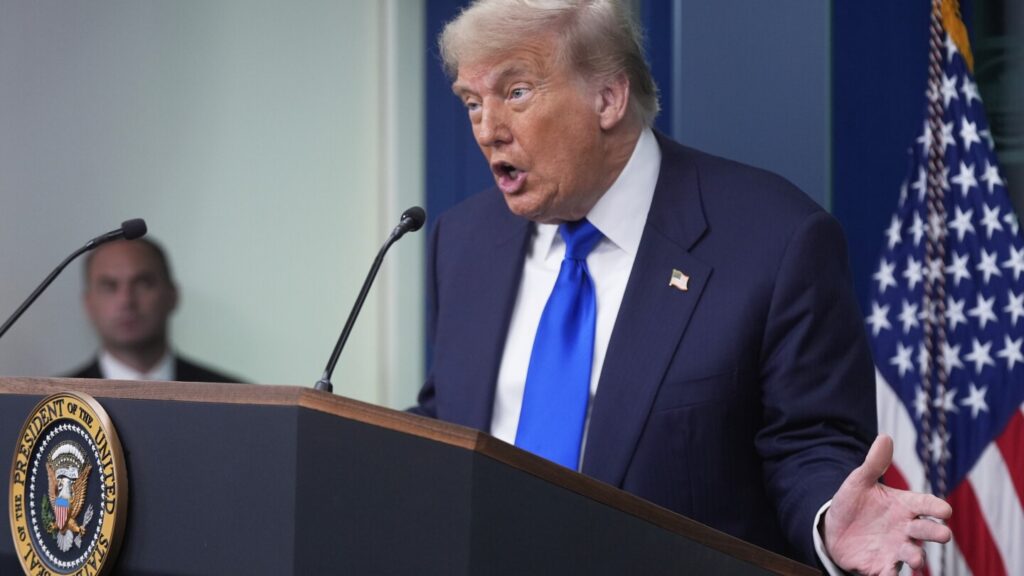
WASHINGTON (AP) — President Donald Trump announced on Friday the suspension of trade discussions with Canada, citing its decision to maintain a digital services tax on technology firms. Trump described this move as “a direct and blatant attack on our country.”
The digital services tax, set to take effect on Monday, targets both Canadian and foreign companies engaging with online users in Canada. In a post on his social media platform, Trump stated, “Based on this egregious Tax, we are hereby terminating ALL discussions on Trade with Canada, effective immediately. We will let Canada know the Tariff that they will be paying to do business with the United States of America within the next seven day period.”
Escalating Tensions in Trade Relations
This latest development marks a new chapter in the ongoing trade tensions since Trump assumed office for a second term in January. The relationship with Canada has been tumultuous, with Trump previously making provocative remarks about the possibility of Canada being absorbed as a U.S. state.
Canadian Prime Minister Mark Carney responded on Friday, emphasizing that Canada would continue negotiations in the best interests of its citizens. “It’s a negotiation,” Carney remarked, maintaining a diplomatic stance despite the abrupt halt in talks.
Economic Implications of the Digital Tax
The digital services tax will impose a 3% levy on revenue generated by companies such as Amazon, Google, Meta, Uber, and Airbnb from Canadian users. This tax is expected to retroactively impact U.S. companies with a $2 billion bill due by the end of the month.
“We appreciate the Administration’s decisive response to Canada’s discriminatory tax on U.S. digital exports,” stated Matt Schruers, CEO of the Computer & Communications Industry Association.
Trump’s administration has been negotiating to ease tariffs on Canadian goods, a process now jeopardized by the digital tax dispute. Previously, Trump had imposed significant tariffs on steel, aluminum, and automobiles, with potential increases looming as a 90-day negotiation window approaches its end.
Strategic and Economic Stakes
Canada remains a crucial economic partner for the U.S., supplying about 60% of U.S. crude oil imports and 85% of electricity imports. It is also the largest foreign supplier of steel, aluminum, and uranium to the U.S., alongside 34 critical minerals and metals sought by the Pentagon.
About 80% of Canada’s exports are destined for the U.S., highlighting the interdependence of the two economies.
Despite the current impasse, experts suggest that the economic stakes may prompt a resolution. Trump’s expectation that Canada will eventually rescind the tax reflects the significant leverage the U.S. holds in these negotiations.
Future Prospects and Political Reactions
In the political arena, reactions have been mixed. Treasury Secretary Scott Bessent, when asked about the suspension of trade talks, declined to comment, indicating the sensitivity of the issue. The broader implications for North American trade relations remain uncertain as both nations navigate these complex negotiations.
As the situation develops, industry leaders and political analysts will be closely monitoring any shifts in policy or rhetoric. The outcome of these trade discussions could have far-reaching consequences for the economic landscape of both countries.
For now, the focus remains on the potential tariffs and their impact on bilateral trade, with stakeholders on both sides of the border advocating for a swift and amicable resolution.







